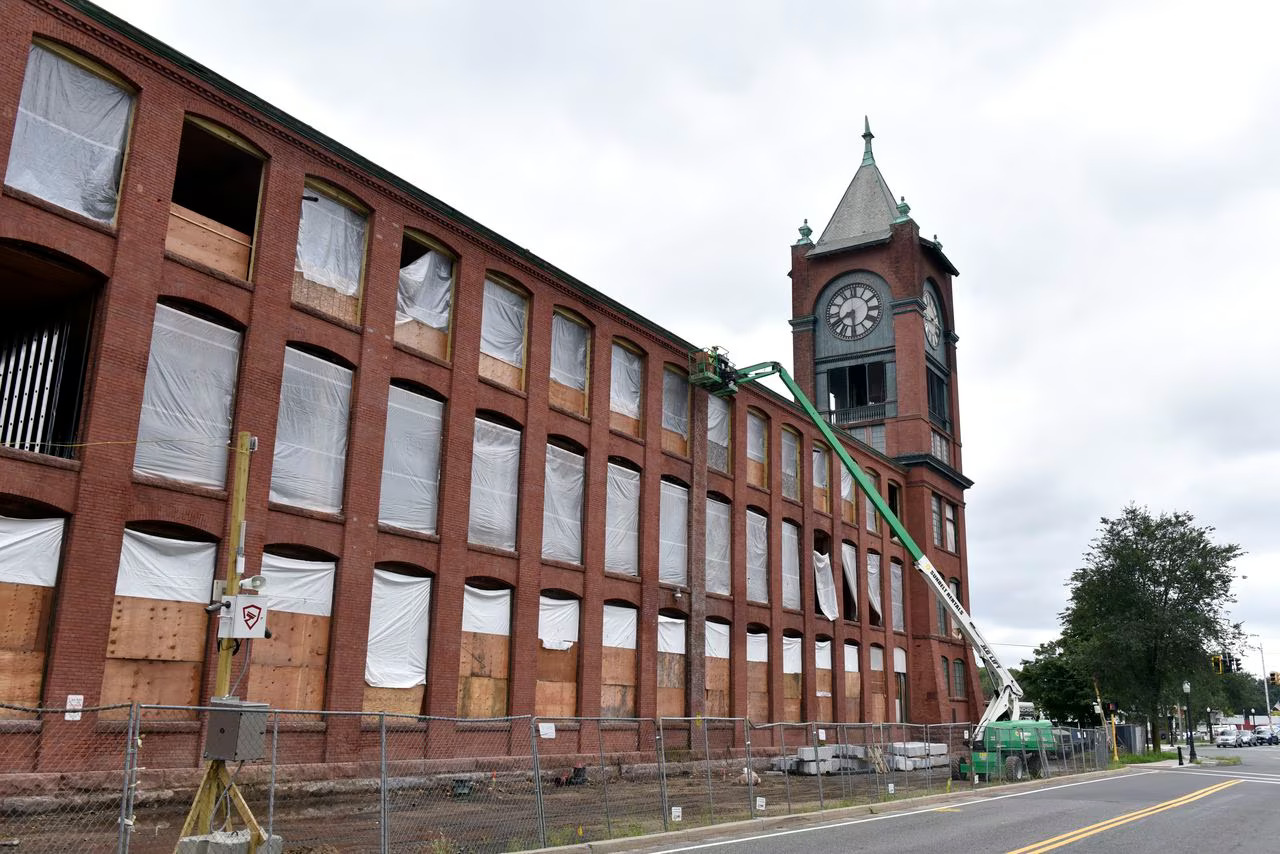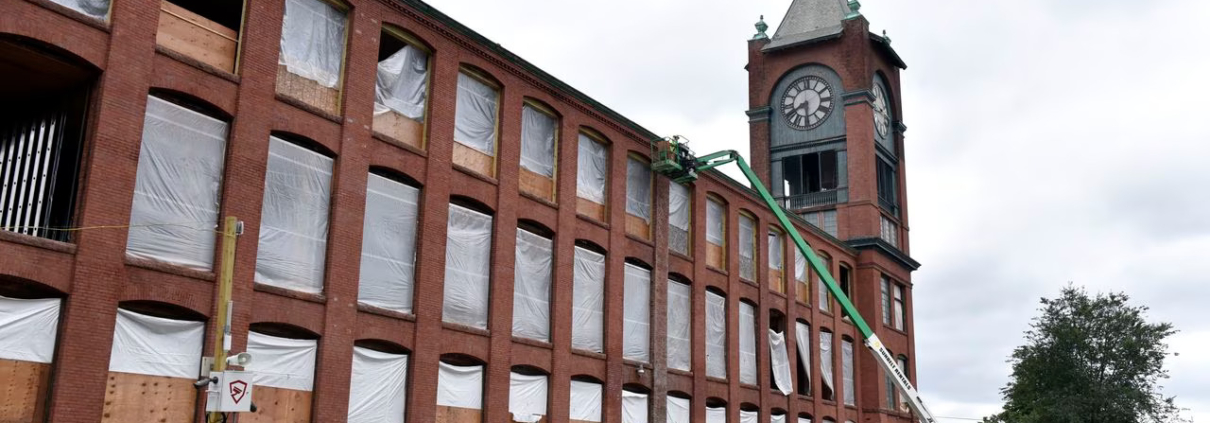$2M purchase brings rehab of historic Ludlow Mills clock tower building closer

The clock tower building at Ludlow Mills, 50 State Street in Ludlow, was sold for $2 million and is being redeveloped by WinnDevelopment into 95 apartments. (Don Treeger / The Republican) 8/17/2023
MassLive (August 17, 2023)
LUDLOW – A long-awaited rehab of the emblematic clock tower building at the Ludlow Mills is closer to completion.
Westmass Area Development Corp. last month sold the upper floors of Building 8 to WinnDevelopment, which plans to build 95 apartments for people age 55 and older, a mix of low income, affordable housing and market-rate units.
“It’s going to change the whole complex,” said Jeff Daley, president & CEO of the Westmass. “To have that building restored and activated is going to be a real plus.”
Westmass, a not-for-profit economic and real estate development firm, will retain the 48,000 square feet of first floor commercial space at Building 8 – at 50 State St. – and lease it for business and office use. Possibly health care, possibly a sandwich and coffee place capitalizing on the increased number of people living and working in the sprawling mills property.
“We don’t know yet. We are starting to put together some marketing materials for it,” Daley said.
Move-in is about a year from now in July 2024. Daley estimated the project’s cost at $55 million. Some of the funding comes through federal and state low-income housing tax credits, as well as monies from the state’s Affordable Housing Trust Fund, Housing Stabilization Fund and HOME program.
And yes, WinnDevelopment’s plans include restoration of the clock to good working order, Daley said. The clock and tower are featured on the town seal and on high school class rings in Ludlow.
WinnDevelopment opened its Residences at Mill 10 next door in 2017 (also 55-and-older apartments) and in 2021 announced it had financing for Mill 8.
“(Mill 8) is going to be leased up incredibly quickly,” Daley said. “Mill 10 has a significant waiting list.”
The project was delayed due to increased construction costs, according to a WinnDevelopment spokesman.
Daley said Westmass was able to keep the project on track by allowing WinnDevelopment early access to begin construction before July’s real estate closing. Work began in early 2022 and many of the loft-style apartments are already framed out.
Elsewhere on the 130-acre Ludlow Mills complex, work continues on a $2 million parking project and a new water and sewer loop project also costing $2 million, Daley said. By the end of summer 2024, Westmass will have completed a $3.1 million road project that opens up 40 acres on the eastern end of the project to development.
“We’ve got a lot of projects going on there this summer. It’s definitely changing the face of the mills to a more modern facility, rather than live with 100-year-old utilities and fields for parking,” he said.
Westmass Development will go to the town in the fall for permission to demolish an old warehouse building – called the 300s – which is impossible to remodel with low 6-foot, 6-inch ceilings made of concrete and no utilities.
Daley expected demolition the next year, which will open up the building behind the warehouse for development.
He estimated that close to all of the first-floor space in the complex is occupied, including Iron Duke Brewing, which recently bought one of the one-story warehouses, called stock houses, on the site to expand.
A new business on the property is called Movement Terrain Youth Athletics, an indoor obstacle course attraction for families.
Much of the complex is occupied by small business, manufacturers and fabricators and workshops, as well as storage for contractors.
Westmass bought the mill complex in 2011 and began redevelopment.
Founded in 1868, Ludlow Manufacturing and Sales Co. made cloth, rope and twine out of Indian-grown jute, flax and hemp, drawing Portuguese and Polish immigrants to the town.
At its height, the mills had about 4,000 employees, many of them children.
But the Great War disrupted the supply of jute fiber from India so the company decided to open a mill there instead and started shifting production overseas.
More: MassLive

 Don Treeger / The Republican 8/17/2023
Don Treeger / The Republican 8/17/2023
